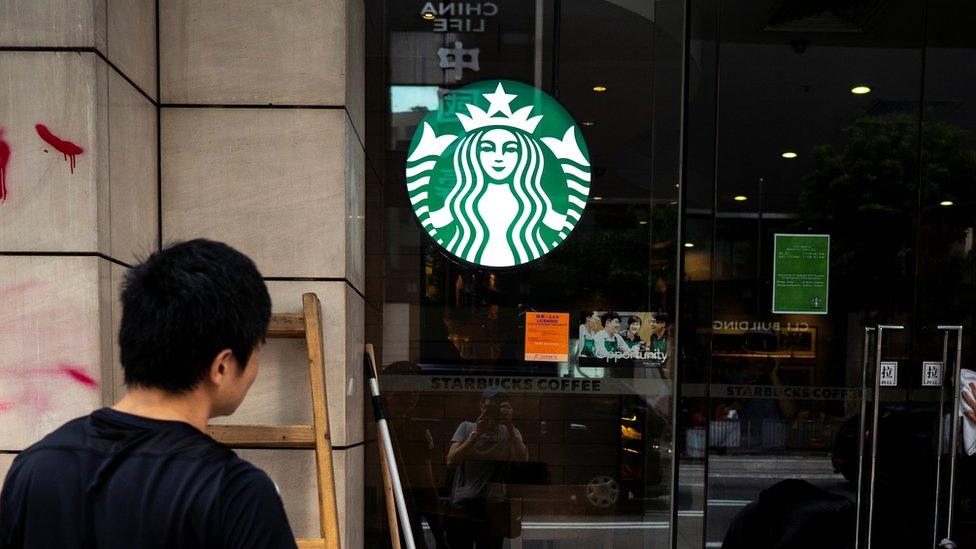Hong Kong protests: President Xi warns of 'bodies smashed'
- Published
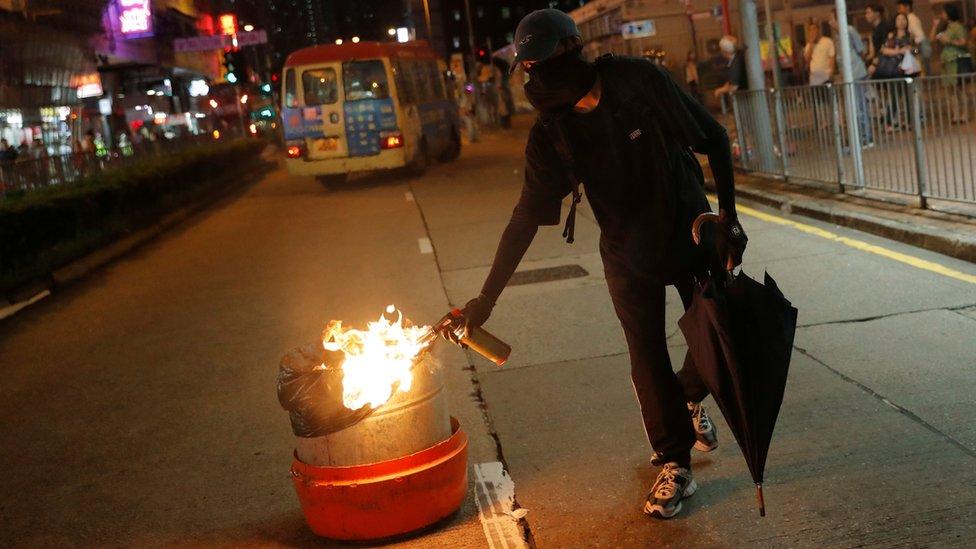
In Hong Kong, several peaceful rallies descended into clashes with police over the weekend
China's president has issued a warning against dissent, saying any attempt to divide China will end in "bodies smashed and bones ground to powder".
Xi Jinping's comments came during a state visit to Nepal on Sunday, Chinese state broadcaster CCTV said.
He didn't mention any particular region but it was seen as a warning to Hong Kong, where anti-Beijing protests have been ongoing for months.
Peaceful rallies in Hong Kong again descended into clashes on Sunday.
Public transport stations and shops deemed to be pro-Beijing were damaged.
What did Xi Jinping say?
"Anyone who attempts to split any region from China will perish, with their bodies smashed and bones ground to powder," Mr Xi said, external, according to a foreign ministry statement issued on Sunday.
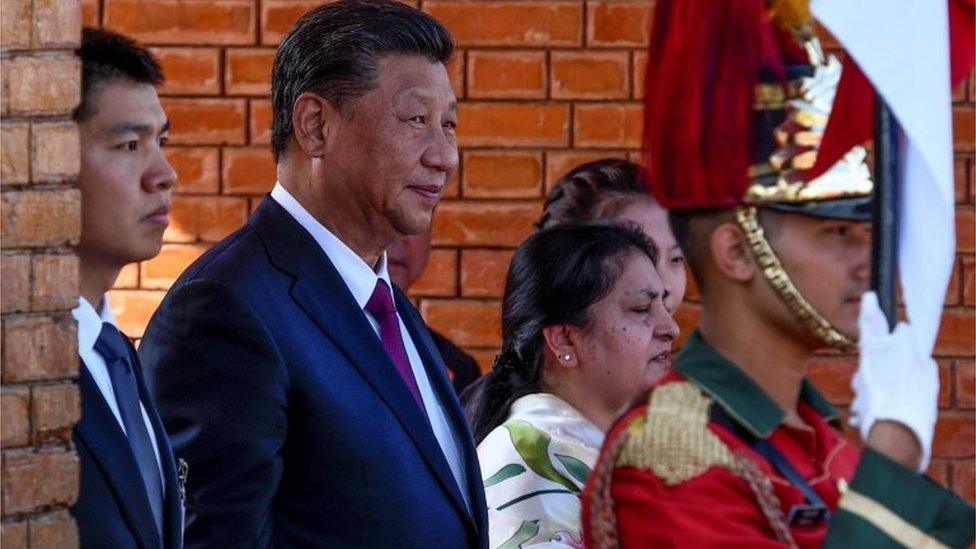
Xi Jinping has now wrapped up his two-day visit to Nepal
"Any external forces that support the splitting of China can only be regarded as delusional by the Chinese people," he said.
Since the start of the Hong Kong protest movement four months ago, China has blamed "external forces" for fuelling the unrest, and accused the US and UK of interfering in Chinese domestic affairs.
Why are his comments notable?
Xi Jinping has yet to make any direct comment on the ongoing protests in Hong Kong, so this will be seen as a rare and strong warning.
Beijing has so far said it believes Hong Kong's police force is capable of handling the crisis. But protesters fear Beijing could send in troops to end the violence on the streets.
This is widely seen as an unlikely scenario because of the serious consequences. Few observers believe China would repeat its 1989 crackdown on pro-democracy activists in Tiananmen Square in Beijing, for examples where hundreds are believed to have died.
What's been going on in Hong Kong?
Hong Kong is a part of China, but has a high level of autonomy - it has its own legal and justice system and far more freedoms than people have on the mainland.
Protecting Hong Kong's young protesters: "Beat us, don't beat the kids"
There has been growing anti-Beijing sentiment for some time, but the latest wave of protests started in June. It was triggered by a proposal to bring in a new law which would have meant criminal suspects could be sent to mainland China to stand trial.
Many were afraid this law could end up being used by the government in Beijing to persecute Hong Kongers who criticise it. Critics said it would undermine Hong Kong's judicial independence.
The government responded to the initial massive protests by saying the bill would be withdrawn, but by that point the protests had escalated.
The protesters now want their "five demands" to be met, which include full democracy for Hong Kong and an inquiry into what they say has been an excessive use of force by the police.
What's the latest on the protests?
Protests have taken place every weekend since June and have happened in every district of the territory, causing widespread disruption.
More than 2,300 people have been arrested since the civil disobedience began.
On Sunday, several neighbourhoods saw rallies, and by the afternoon at least 27 stations on the MTR - Hong Kong's metro - were closed.
Police said they had used "minimum force" to disperse protesters, but television footage showed weekend shoppers caught in the chaos. Some were filmed screaming and apparently injured as officers rushed into a shopping centre.
Petrol bombs were thrown at Mong Kok police station, and one officer was slashed in the neck, authorities say. He is in a stable condition in hospital, external, the South China Morning Post reports.
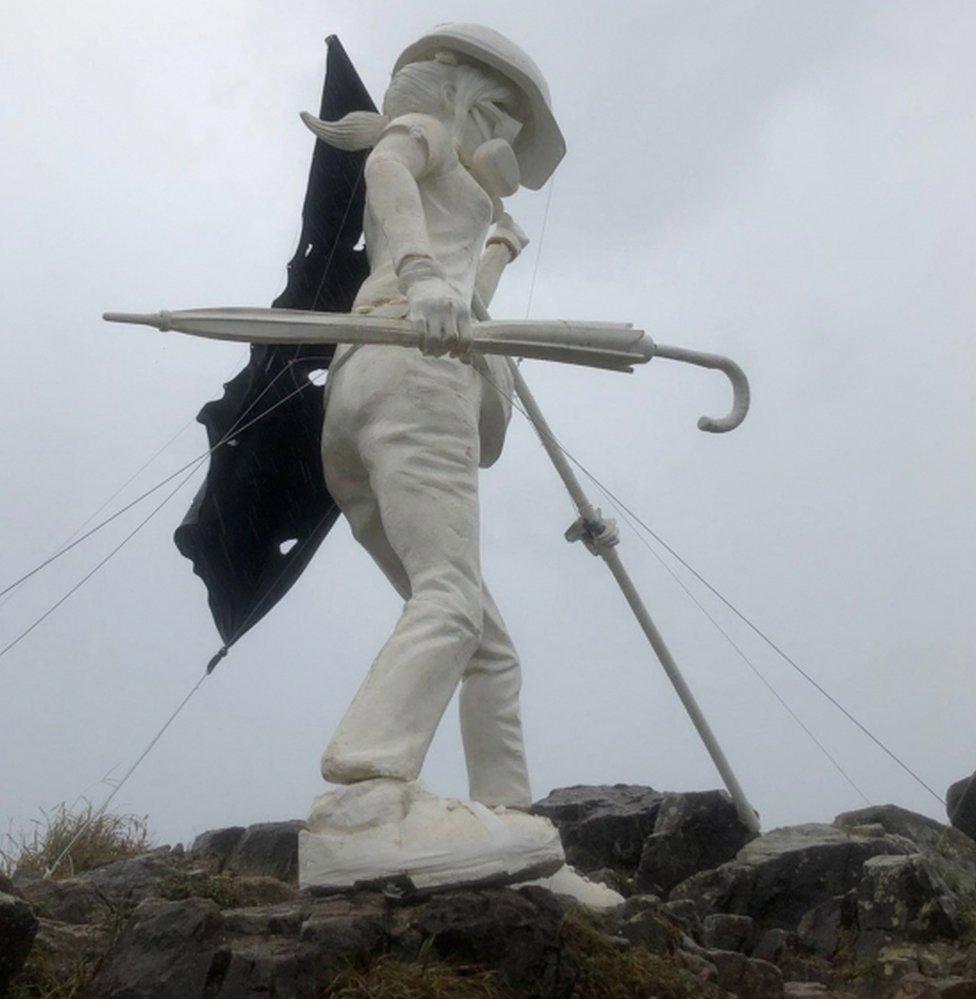
The "Lady Liberty" statue was installed on Hong Kong's Lion Rock overnight by several protesters

Overnight on Sunday, one group of protesters hauled a three-metre-high (9ft) statue of a protester on to Lion Rock, a famous outcrop overlooking Hong Kong.
The statue, Lady Liberty, has become a symbol of the rallies, and sports a gas mask, goggles and a helmet.
She represents an injured protester who demonstrators believe was shot in the eye by a police projectile.
The group of several dozen, some wearing head lamps, climbed the 500m peak during a thunderstorm. The statue held a black banner that read: "Revolution of our time, Liberate Hong Kong."
- Published12 October 2019
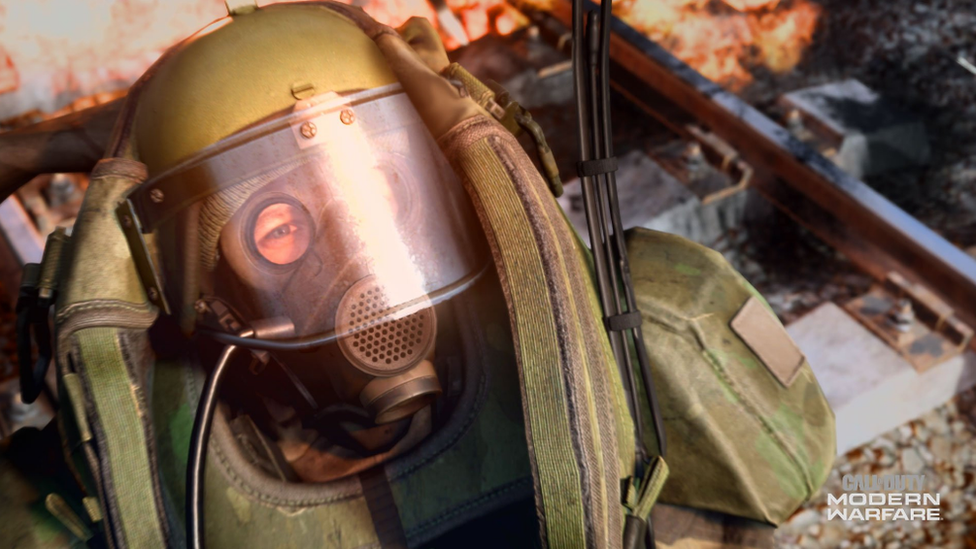
- Published11 October 2019
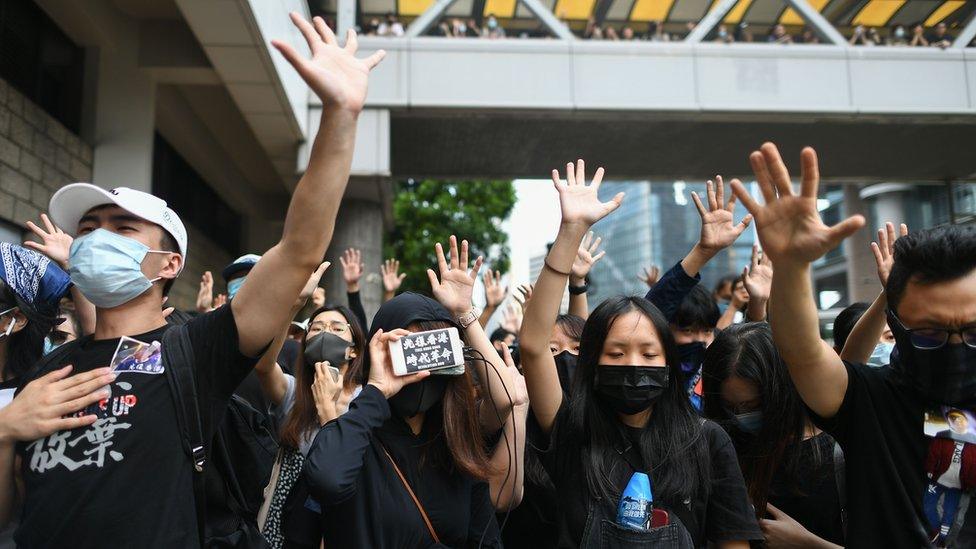
- Published11 October 2019
